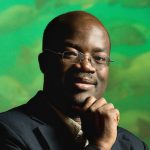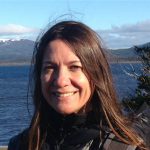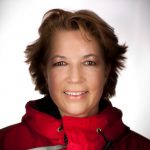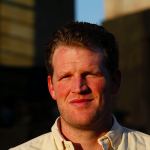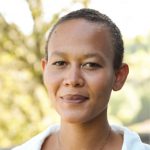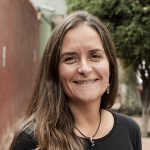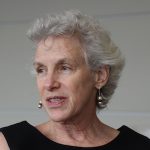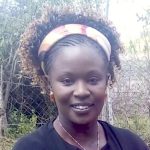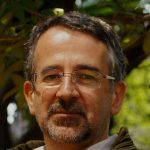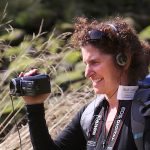Sessions by Theme
- Marriott Marquis: Salons 10-12
B5) Can We Save the Oceans from Ourselves?
- Marriott Marquis: Nob Hill Room
C1) Science Journalism in Latin America: Past, Present and Future
- Marriott Marquis: Nob Hill Room
E1) Land of The Giants: South American Dinosaurs and Antarctic Secrets
- Marriott Marquis: Salons 1-3
F2) Astronomy’s Next Big Things
- Marriott Marquis: Salons 1-3
G2) Covering Indigenous Voices in Science
- Marriott Marquis: Salons 8-9
P8) Science Journalism, Authoritarian Regimes, and Pseudoscience
- MARRIOTT MARQUIS: SALONS 8-9
P9.5) Closing Ceremony and Plenary: The Hazard Zone: Science Journalists Tackle Natural Disasters
WCSJ2017 thanks ECMWF Copernicus for its support of presentation of sessions on Climate, Environment, and Sustainability
- Marriott Marquis: Salons 10-12
B5) Can We Save the Oceans from Ourselves?
F4) Economic Inequality, Violence, and Life in a Changing Climate
- Marriott Marquis: Salon 9
F5) The Human Ethics of Global Crisis Reporting
- Marriott Marquis: Salons 10-12
G5) Stories Don’t Stop at Borders, So Journalists Shouldn’t Either
- University of California, Berkeley: Maude Fife Room (315)
H2) Make ‘em Sizzle: Turn Up the Heat on Slow Environmental Stories
- University of California, Berkeley: Alumni House Toll Room
J3) Exploring and Managing Earth’s Microbiome
- UCSF Mission Bay Campus
K1) Ringing in the Changes: The Role of Advocacy Journalism in Telling Science Stories
- University of California, Berkeley: Wheeler Hall Auditorium
P11) Climate Change Primer: Responding to Global Impacts of Human Activity
P2) Why the Wafflers Are Wrong: Addressing Climate Change Is Urgent—and a Bargain
- MARRIOTT MARQUIS: SALONS 8-9
P9.5) Closing Ceremony and Plenary: The Hazard Zone: Science Journalists Tackle Natural Disasters
 Health journalism track produced by the Association of Health Care Journalists with support from: The Commonwealth Fund Robert Wood Johnson Foundation Leona M. and Harry B. Helmsley Charitable Trust Gordon and Betty Moore Foundation Burroughs Wellcome Fund
Health journalism track produced by the Association of Health Care Journalists with support from: The Commonwealth Fund Robert Wood Johnson Foundation Leona M. and Harry B. Helmsley Charitable Trust Gordon and Betty Moore Foundation Burroughs Wellcome Fund
- Marriott Marquis: Salons 4-6
A3) Tapping Databases for Scientific Evidence on Health
- Marriott Marquis: Salons 4-6
B3) The Global Refugee Crisis: Changing Health Needs
- Marriott Marquis: Salons 4-6
C3) Why Social Determinants Matter in Health Journalism
- Marriott Marquis: Salons 4-6
D3) The Challenges of Covering Infectious Disease Outbreaks
- Marriott Marquis: Salons 4-6
E3) Slow-Motion Epidemics: The Global Threat of Chronic Disease
- Marriott Marquis: Salons 4-6
F3) Reporting with Clarity on Vaccines and Vaccine Development
- Marriott Marquis: Salons 4-6
G3) Antibiotic Resistance: The Next Challenges
WCSJ2017 thanks the sponsors who are supporting presentation of sessions on Technology and Innovation, including: Intellectual Ventures Johns Hopkins Medicine
A2) Open Data and Global Drug Discovery
- Marriott Marquis: Salons 10-12
A5) The Future of Work
- Marriott Marquis: Salons 10-12
C5) The Rise of Digital Science Magazines
- Marriott Marquis: Salons 8+9
G4) Innovating for Development
- University of California, Berkeley: Alumni House Toll Room
H1) Mobile Technology, Newsroom and Citizen Engagement
- University of California, Berkeley: Wheeler Hall Auditorium
H3) Cutting-Edge Nuclear Technology: Which Questions Matter?
I4) Engineered Cells: The Medicines of Tomorrow
- University of California, Berkeley: Maude Fife Room (315)
J1) Innovative Approaches to Teaching Science Journalism
P3) The Art of Truth: Data Visualization and Infographics for Everyone
WCSJ2017 thanks the sponsors who are supporting presentation of sessions on Issues in Science & Science Journalism, including: The Hastings Center and the Rita Allen Foundation.
- Marriott Marquis: Nob Hill Room
A1) Conflicts of Interest for Freelance Science Journalists
- Marriott Marquis: Salons 1-3
B2) Decolonizing Science
- Marriott Marquis: Salon 8
B4) Third Interactive WCSJ House of Commons Debate: With Science Under Attack, Should Science Journalists Get Off the Sidelines?
- Marriott Marquis: Salon 8
C4) Covering Research on Lab Animals: Challenges and Opportunities
- Marriott Marquis: Nob Hill Room
D1) Science’s Billionaire Backers: Philanthropy’s Role in Research
- Marriott Marquis: Salons 8-9
D2) The Challenges of Covering Sexual Harassment in Science
- Marriott Marquis
E5) Reporting on Genome Editing: An International Discussion
- Marriott Marquis: Nob Hill Room
F1) Conflicting Data: Dealing with the Reproducibility Issue
- Marriott Marquis: Salon 9
F5) The Human Ethics of Global Crisis Reporting
G1) A Modestly Grandiose Proposal for How Scientists and Journalists Might Save the World, Up for Discussion
- Marriott Marquis: Salons 1-3
G2) Covering Indigenous Voices in Science
- UCSF Mission Bay Campus
I3) Leveling the Playing Fields: Science Journalism and Big Food
- UCSF Mission Bay Campus
K1) Ringing in the Changes: The Role of Advocacy Journalism in Telling Science Stories
K2) Undercover Science Journalism
P4) In Defense of Science
- Marriott Marquis: Salons 8-9
P8) Science Journalism, Authoritarian Regimes, and Pseudoscience
A2) Open Data and Global Drug Discovery
- Marriott Marquis: Salons 10-12
A5) The Future of Work
- Marriott Marquis: Salons 10-12
B5) Can We Save the Oceans from Ourselves?
- Marriott Marquis: Salons 1-3
C2) SESAME – A Scientific Source of Light for the Middle East
- Marriott Marquis: Salon 8
C4) Covering Research on Lab Animals: Challenges and Opportunities
- Marriott Marquis: Nob Hill Room
D1) Science’s Billionaire Backers: Philanthropy’s Role in Research
D4) Neurons from the Human Brain
- Marriott Marquis: Nob Hill Room
E1) Land of The Giants: South American Dinosaurs and Antarctic Secrets
- Marriott Marquis: Salons 1-3
F2) Astronomy’s Next Big Things
F4) Economic Inequality, Violence, and Life in a Changing Climate
G1) A Modestly Grandiose Proposal for How Scientists and Journalists Might Save the World, Up for Discussion
- Marriott Marquis: Salons 8+9
G4) Innovating for Development
- University of California, Berkeley: Wheeler Hall Auditorium
H3) Cutting-Edge Nuclear Technology: Which Questions Matter?
- UCSF Mission Bay Campus
I2) When Will Healthcare Reach Digital Nirvana?
I4) Engineered Cells: The Medicines of Tomorrow
- University of California, Berkeley: Wheeler Hall Auditorium
J2) “Contact” Plus 20: Where We Are in the Search for Aliens
- University of California, Berkeley: Alumni House Toll Room
J3) Exploring and Managing Earth’s Microbiome
K3) Stem Cells: The Hype and the Hope
K4) Progress, Pitfalls, and Prospects: An “Un-Lecture” on Cancer
P1) Rewriting the Code of Life
P10) “One Test to Rule Them All”: Joe DeRisi in Conversation with Carl Zimmer
- University of California, Berkeley: Wheeler Hall Auditorium
P11) Climate Change Primer: Responding to Global Impacts of Human Activity
P4) In Defense of Science
P5) Africa: The Cradle of Mathematical Sciences
P6) A Delicate Balance: Immunity in Health, Disease and Medicine
WCSJ2017 thanks the sponsors who are supporting presentation of Science Storytelling sessions, including: Alfred P. Sloan Foundation American Association for the Advancement of Science and its EurekAlert! service
- Marriott Marquis: Salon 8
A4) Putting Character into Science—the Power of Profiles
- Marriott Marquis: Nob Hill Room
B1) Science Heard Around the World: Podcasting in the U.S. and Beyond
- Marriott Marquis: Nob Hill Room
C1) Science Journalism in Latin America: Past, Present and Future
- Marriott Marquis: Salons 10-12
C5) The Rise of Digital Science Magazines
- Marriott Marquis: Salons 14-15
D5) Power Pitch 2017
- Marriott Marquis: Salons 1-3
E2) There Is a 95% Chance You Should Attend this Session on Statistics
- Marriott Marquis: Salon 8
E4) Fact-checking: The Future of Journalism?
- Marriott Marquis: Salon 9
F5) The Human Ethics of Global Crisis Reporting
- Marriott Marquis: Salons 10-12
G5) Stories Don’t Stop at Borders, So Journalists Shouldn’t Either
- University of California, Berkeley: Alumni House Toll Room
H1) Mobile Technology, Newsroom and Citizen Engagement
- UCSF Mission Bay Campus
I1) Engaging Your Audience with Poop Jokes and Other Funny Elements
- University of California, Berkeley: Maude Fife Room (315)
J1) Innovative Approaches to Teaching Science Journalism
K2) Undercover Science Journalism
P3) The Art of Truth: Data Visualization and Infographics for Everyone
P7) Book It: A Conversation Among Authors Mary Roach, Steve Silberman and Ed Yong
- MARRIOTT MARQUIS: SALONS 8-9



